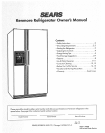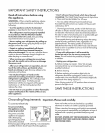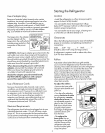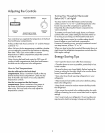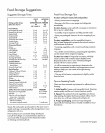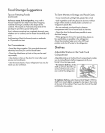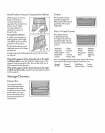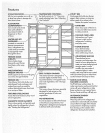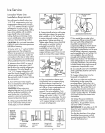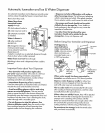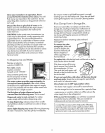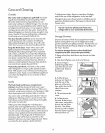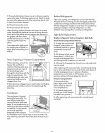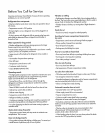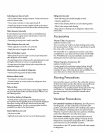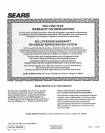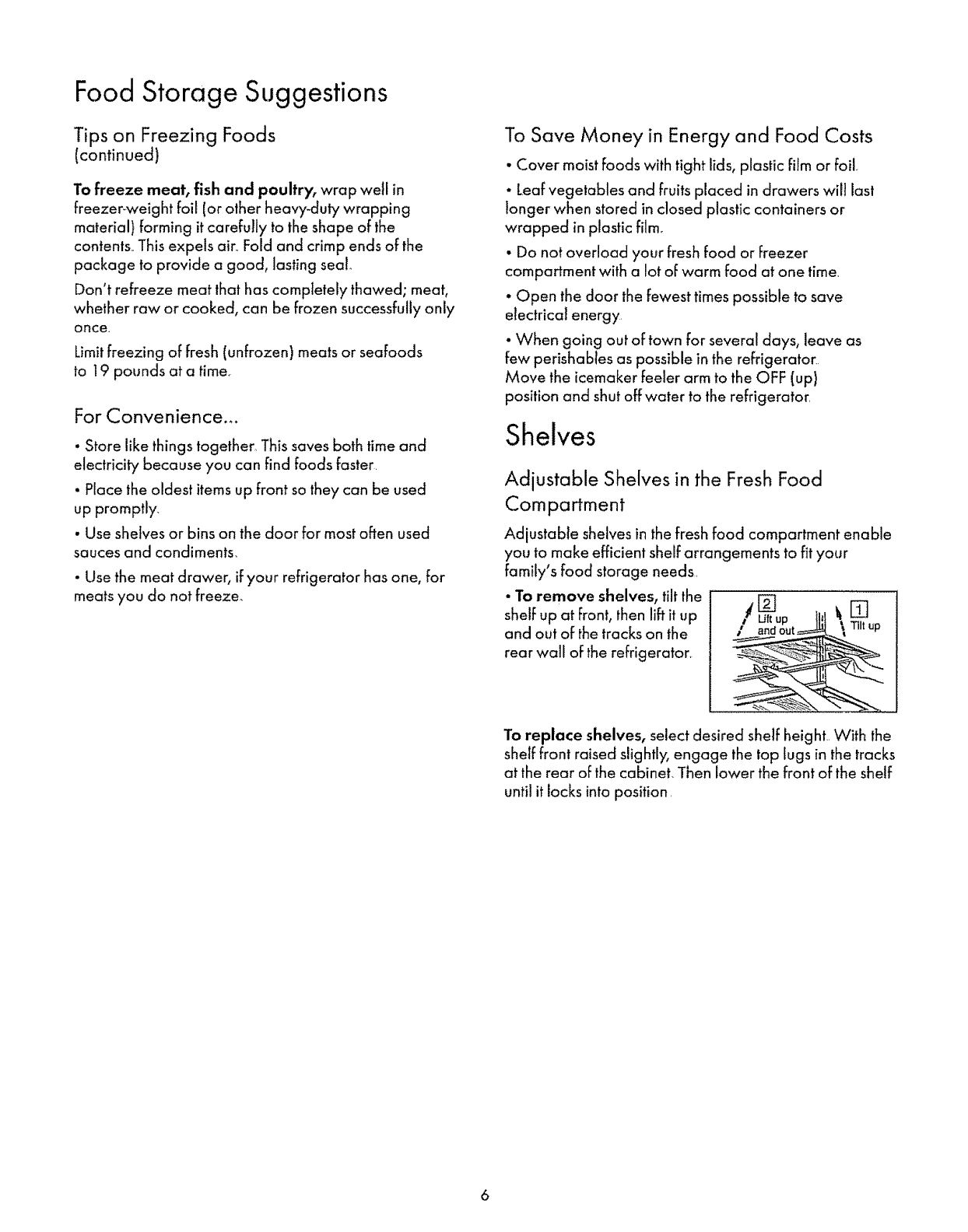
Food Storage Suggestions
Tips on Freezing Foods
(continued)
To freeze meat, fish and poultry, wrap well in
freezer_weight foil (or other heavy-duty wrapping
material) forming it carefully to lhe shape of the
contents This expels air Fold and crimp ends of the
package to provide a good, lasting seal
Don't refreeze meat that has compIetely thawed; meat,
whether raw or cooked, can be frozen successfully only
once
Limit freezing of fresh (unfrozen) meats or seafoods
to 19 pounds at a time
For Convenience._
• Store like things together This saves both time and
electricity because you can find foods faster
• Place the oldest items up front so they can be used
up promptly.
. Use shelves or bins on the door for most often used
sauces and condiments,
• Use the meat drawer, if your refrigerator has one, for
meats you do not freezer
To Save Money in Energy and Food Costs
• Cover moist foods with tight lids, plastic film or foil.
• Leaf vegetables and fruits placed in drawers will last
longer when stored in closed plastic containers or
wrapped in plastic film_
• Do not overload your fresh food or freezer
compartment with a lot of warm food at one time
• Open the door the fewest times possible to save
electrical energy
• When going out of town for several days, leave as
few perishables as possible in the refrigerator
Move the icemaker feeler arm to the OFF (up)
position and shut off water to the refrigerator
Shelves
Adjustable Shelves in the Fresh Food
Compartment
Adjustable shelves in the fresh food compartment enable
you to make efficient shelf arrangements to fit your
family's food storage needs
• To remove shelves, tilt the
shelf up at front, then lift it up
and out of the tracks on the
rear wall of the refrigerator
/_uo !,,,_,IZ]
/ and_ut___iL \ Tiltup
To replace shelves, select desired shelf height With the
shelf front raised slightly, engage the top lugs in the tracks
at the rear of the cabinet, Then lower the front of the shelf
until it locks into position
6



